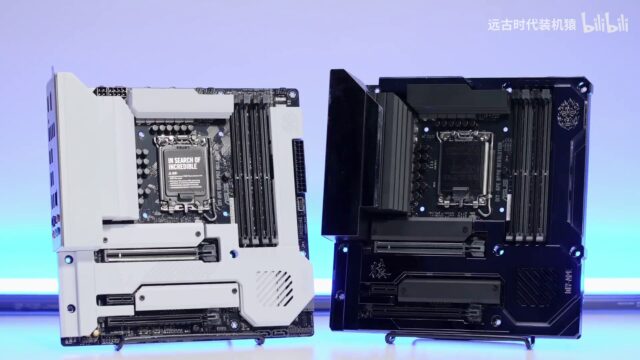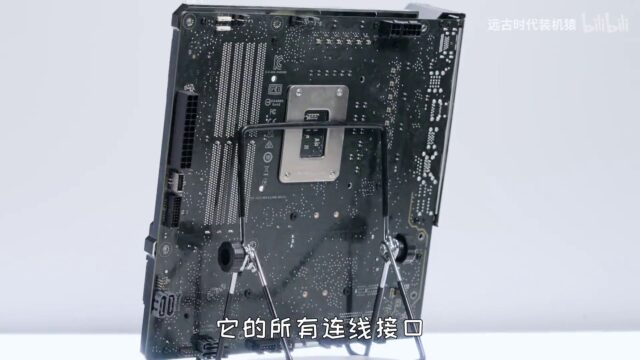Asus Wants to Spark a ‘Revolution’ to Hide All PC Cables

(Photo: @harukaze5719)Recently there have been a few “stealth” projects for PC builders, most notably from Gigabyte. The concept is pretty simple: Put all the connectors on the back of the motherboard. This allows the typical rat’s nest of cables to remain hidden from sight. The only problem is this requires a custom motherboard and a compatible chassis. So far Gigabyte has offered its own solution, but you have to buy all the parts at once. There’s no way to just DIY it using different vendors.
Asus is attempting to solve that problem with a new project it calls APE Revolution. The project is similar to Gigabyte’s Stealth PC, but differs in that Asus is trying to get a lot of companies onboard. This could give PC builders a few options when building a system. The project was revealed in a video uploaded to Bilibili along with a Twitter post via Videocardz. The companies involved include Lian Li, Cooler Master, Phanteks, and several others.
Another major difference from Gigabyte’s project is it includes both AMD and Intel motherboards. Gigabyte only offered it with a Z690 board and an Nvidia GPU. Asus seems to be making it for its less expensive boards, though, namely the B and H class boards for 600 and 700 series chipsets. For AMD it might release a B650 version for AM5 builds.

A prototype Asus motherboard with all the connectors relocated to the back of the board. (Image: @harukaze5719)
As you can see above, all the connectors have been moved to the back of the board. They slide into cutouts in compatible cases, letting you connect everything from the back. It introduces a curious problem though: how to connect the CPU fan cable. The same goes for an AIO pump as well. The motherboard does have 4-pin connectors at the top of the board where they usually go, but you’d still see a cable there. There’s also no way to hide AIO tubing, either. A notable inclusion is all the connectors for the front-mounted I/O.
It’s an excellent idea, but for something like this to gain steam, it needs to start with the motherboard. Asus is still one of the world’s largest motherboard manufacturers, so it makes sense for it to be the company pushing it. Getting case manufacturers on board is another question. Still, Lian Li and Cooler Master are huge, so it’s a good start. It’ll be interesting to see if it ever moves beyond the curiosity phase and becomes an actual ecosystem of products.
Like many people, we often start a build with good intentions and end up with an embarrassing mess of cables. The problem will only get worse with next-gen GPUs too, as they will require three or four PCIe power cables to power them. That is, unless you have an ATX 3.0 PSU, but those aren’t readily available yet.
Now Read:

Comments are closed.